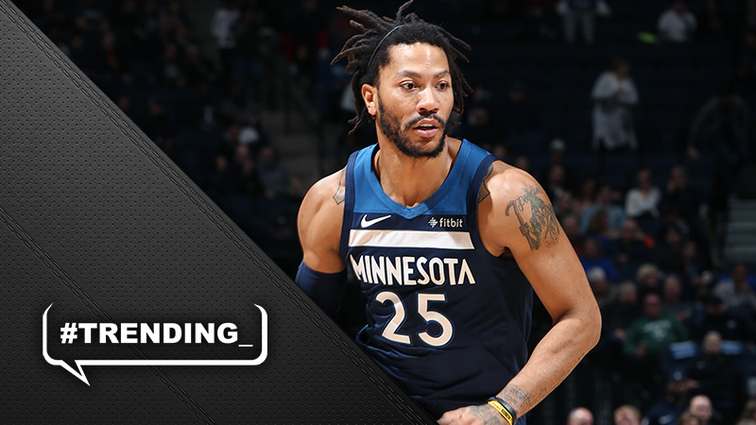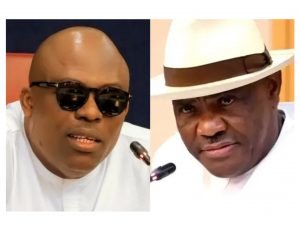Pistons free-agent recap: Turning cap exceptions into exceptional results


LAS VEGAS – The Pistons went into free agency with limited resources and came out of it with two players who very well could be on the floor to finish games and a third who can help put them in favorable position to get there.
Armed with only cap exceptions – the mid-level, biannual and veteran’s minimums – the Pistons signed former MVP Derrick Rose and longtime starter Markieff Morris, twin of ex-Pistons forward Marcus Morris, to substantially bolster a rotation that leaned heavily on its starters, Blake Griffin and Andre Drummond in particular.
Rose gives the Pistons an alpha to run the second unit – but considerably more than that. With Reggie Jackson turning a corner at mid-season in his return from the catastrophic December 2017 ankle injury, the addition of Rose gives the Pistons three players – Griffin foremost – they can rely on to generate offense in the final minutes of contested games.
Morris, whom the Pistons were able to sign for the reported $3.6 million biannual exception only because he’s coming off of an injury-marred season, will give the Pistons a formidable replacement for Griffin – both off of the bench or, when the Pistons choose to sit Griffin as a precaution, in the starting lineup.
The Pistons also signed point guard Tim Frazier, a five-year veteran who started 19 games last season for New Orleans and Milwaukee. Having a third point guard capable of soaking up regular rotation minutes will free Dwane Casey to pair Rose and Jackson judiciously – with the closing minutes of contested fourth quarters the likeliest occurrence.
In an overheated market with 40 percent of NBA players hitting free agency and more money available than at any time since the unprecedented 2016 off-season, signing Rose for the reported $15 million over two years is a coup for the Pistons.
Look at the contracts of other free-agent point guards: Patrick Beverly got three years and $40 million to return to the Clippers, Terry Rozier three years and $58 million from Charlotte, Corey Joseph three years and $37 million from Sacramento, George Hill three years and $29 million from Milwaukee and Rickey Rubio three years and $51 million from Utah. Rose averaged 18.0 points in 27 minutes a game last season in Minnesota, upping his 3-point shooting to a career-best .370. He played 51 games, missing the final 15 with an ankle injury while the Timberwolves went into modified tank mode.
Morris, slightly bigger than his brother, could give the Pistons minutes at both power forward and center, especially against unconventional lineups that coaches have become more emboldened to play throughout the course of a game and not just in the final five minutes.
The Pistons have one open roster spot that is likely ticketed for a backup center, but Morris’ ability to play that spot eases the urgency to find an every-night rotation staple in that signing. With Thon Maker and Morris both offering different skill sets, the Pistons have a little more leeway in identifying the right fit with their last signing.
The neck injury that sidelined Morris for 19 games midway through the 2018-19 season deflated his numbers to 9.4 points and 4.6 rebounds. Prior to that, he’d averaged between 11.6 and 15.3 points and 5.2 and 6.5 rebounds for seven straight seasons. He’s more than capable of averaging 25 minutes a game, which means the Pistons will look for ways to use him in a broader role than just at power forward while Griffin sits.
Morris is a career 34 percent 3-point shooter, but in his last two full healthy seasons as he transitioned – in step with NBA trends – to more of a perimeter game, Morris shot .362 and .367 from the arc and took 42 and 44 percent of his shots from three in those seasons.
Frazier, a standout at Penn State who went undrafted in 2014, averaged 5.3 points and 4.2 assists last season, playing 19 minutes a game. In the regular-season finale, with Milwaukee resting starters for the playoffs, Frazier played all 48 minutes and put up 29 points and 13 assists against Oklahoma City. He made 36 percent of his 3-point shots last season with 36 percent of his total shots coming from the arc.
That’s a lot of bang for the buck the Pistons got in free agency. Throw in the June trade for Tony Snell that gives them a presumptive starter at small forward and another high-volume, above-average 3-point shooter and they’ve inarguably upgraded their roster. For a team that entered free agency with nothing but cap exceptions, an exceptional result.






